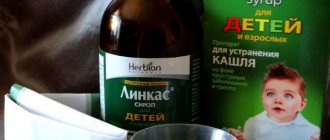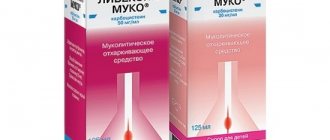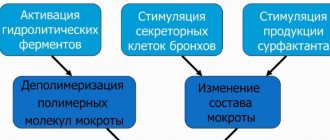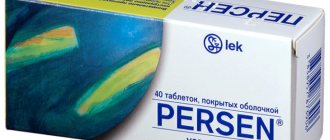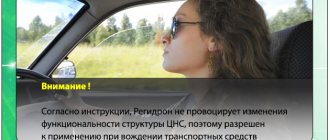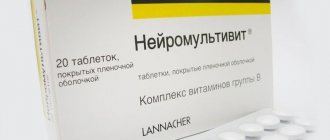Cough is an unpleasant symptom that makes parents worry and look for ways to relieve their child from the painful effects of this manifestation. Parents should be warned right away that trips to the pharmacy asking for something for a cough end with the cough not going away, and taking medications bought at random does not bring a therapeutic effect, and sometimes even causes harm.
Pharmacists, without specifying the problem, advise tablets, syrups and mixtures that are stored on the shelf “for cough”, and the buyer, taking into account his capabilities, takes the remedy that his financial capabilities allow. This approach to treatment is simply terrifying, especially when it comes to the health of children.
In this article we will look at the instructions for using Ascoril syrup for children.
Introduction
A cough is only a small hint in the diagnosis, therefore, only a doctor should decide which remedy is suitable for a child.
All antitussive medications are used to eliminate dry or wet cough. With a dry cough, the main goal of therapy is to transform it into a moist state, and then it will be easy for sputum to leave the respiratory tract. With a wet cough, sputum should be removed and the tracheobronchial tree should be freed from the load.
Sometimes a dry cough is treated with drugs that calm the brain, where the signals responsible for the cough reflex come from.
Observing children, pediatricians state that dry cough is poorly tolerated by children, because it is “exhausting”, makes the child restless and capricious, and is sometimes complicated by attacks of suffocation. With a wet cough, most children feel satisfactory.
In our article we will talk about cough syrup with the trade name “Ascoril Expectorant”, produced by the Indian company Glenmark Pharmaceuticals Ltd. Let's find out what recommendations exist, according to the instructions for use, and highlight the main parameters under which Ascoril syrup is recommended for children.
Composition of Ascoril
Ascoril is a combined drug, each component of which complements each other, providing a pronounced mucolytic, bronchodilator (relieves bronchospasm) and expectorant effect.
The active substances of Ascoril are as follows:
- guaifenesin (100 mg) – thins sticky sputum;
- bromhexine (4 mg) – suppresses cough impulses, makes sputum less thick, removes it from the bronchi, enhances the antibacterial effect;
- salbutamol - dilates the bronchi, thereby relieving obstruction and asthma attacks.
The syrup is available in bottles of 100 and 200 ml. Ascoril has a pleasant bitter taste and a beautiful orange hue, although children do not always take it with pleasure.
You should not rely on the price of the syrup indicated in some instructions for use, because... it is constantly changing, and it should also be taken into account that the same syrup is suitable for children as for adults (there is no separate children’s form), so we buy the product based only on volume.
Today, the optimal price for 100 ml ascoril (syrup) is 300 rubles, and for a 200 ml bottle – about 400–450 rubles.
Instructions for use of Ascoril syrup for children (dosages and indications for use)
The first thing parents are interested in is at what age can you take Ascoril syrup? According to the instructions, unlike tablets, syrup is approved for use after a year.
From one to 6 years, syrup is recommended 5 ml (teaspoon) 2-3 times a day. From the age of six, the dose increases and is 10 ml (tablespoon) three times a day. Depending on the nature and intensity of the cough, the pediatrician adjusts the dosage and duration of administration (usually up to 7 days). Taking syrup is often recommended between feedings of the child.
As for the main indications, they are as follows:
- bronchitis;
- tracheobronchitis;
- emphysema;
- tuberculosis;
- pleurisy;
- whooping cough;
- bronchopneumonia;
- pneumonia;
- cystic fibrosis is a genetic systemic hereditary disease;
- COB (chronic obstructive bronchitis) during an exacerbation;
- pneumoconiosis;
- bronchial asthma (exacerbation).
Important! Ascoril is not prescribed for common colds and viral infections. It is characterized only by strict indications, especially a tendency to difficult to separate sputum, dry non-productive cough and obstructive processes in the bronchi. Therefore, ascoril is not a product that can be used uncontrollably, such as pertussin or licorice syrup. Ascoril is prescribed by a pulmonologist or an experienced pediatrician.
Pharmacokinetics
Salbutamol
When taken orally, absorption is high. Eating reduces the rate of absorption but does not affect bioavailability. Communication with plasma proteins - 10%. Penetrates through the placenta.
Subjected to first-pass metabolism in the liver and in the intestinal wall, it is inactivated by phenolsulfotransferase to 4-o-sulfate ester. T1/2 - 3.8-6 hours. Excreted by the kidneys (69-90%), mainly in the form of an inactive phenol sulfate metabolite (60%) within 72 hours and with bile (4%). The bioavailability of orally administered salbutamol is about 50%.
Bromhexine
When taken orally, it is almost completely (99%) absorbed from the gastrointestinal tract within 30 minutes. Bioavailability is low (the effect of primary “passage” through the liver). Penetrates through the placental barrier and the BBB. In the liver it undergoes demethylation and oxidation, and is metabolized to the pharmacologically active ambroxol. T1/2 - 15 hours (due to slow reverse diffusion from tissues). Excreted by the kidneys. In chronic renal failure, the excretion of metabolites is impaired. May accumulate with repeated use.
Guaifenesin
Absorption from the gastrointestinal tract is rapid (25-30 minutes after oral administration). T1/2 - 1 hour. Penetrates tissues containing acidic mucopolysaccharides. Approximately 60% of the administered drug is metabolized in the liver. Excreted by the lungs (with sputum) and kidneys both unchanged and in the form of inactive metabolites
Contraindications and adverse reactions
Like any drug, Ascoril has its limitations for use, they are as follows:
- heart and vascular diseases (arrhythmias, heart disease (aortic stenosis), hypertension, tachycardia, myocarditis);
- hormonal pathologies (diabetes mellitus (decompensated form), thyrotoxicosis, hyperthyroidism);
- ulcerative and inflammatory processes in the stomach;
- severe pathologies of the liver and kidneys;
- children up to 12 months (only for syrup), for tablets - up to 6 years;
- Ascoril is not compatible with cough center blockers;
- individual immunity of the composition of Ascoril.
As a result of using syrup, the following side effects are sometimes observed:
- pinkish coloration of urine;
- collapse;
- increased heart rate;
- convulsions;
- bronchospasm;
- tremor;
- trembling in the limbs;
- excitation;
- nausea or vomiting;
- stomach bleeding;
- skin rash;
- headache;
- other.
If a child is at risk and Ascoril syrup is contraindicated for him, then safer analogues are selected as an alternative, which we will talk about a little later.
The list of contraindications and side effects is quite impressive, so such information should not frighten parents, but rather warn them against doing anything on their own in treatment. Unfortunately, many people like to use quick-acting remedies right away, without thinking that at the right time they will have to turn to even more complex medications for help.
The main rule in treatment! Any therapy is prescribed using safe means: herbal preparations, homeopathy and folk recipes.
If the baby has a cold or has a slight cough, then you should always start with the simplest methods, such as: warm drinks, rubbing, warm compresses, and only if they are ineffective, resort to drug therapy.
Reviews
Daria: “When the doctor prescribed Ascoril for us, I was distrustful of it - it was the first time I had heard about it. However, the effect of the syrup fully met expectations: the cough became less severe and hysterical, and the intensity of the attacks significantly decreased. The course of treatment lasted a week, as prescribed by the therapist, but already on the 4th day it became obvious that recovery had practically occurred. I’m glad I discovered this remedy for myself and my daughter!”
Olga: “I have known this medicine for a long time, I drink syrup without a doctor’s prescription. I just know my body, and besides, my therapist had already prescribed this drug to me. It always helps just great. Literally from the very beginning of taking it, I begin to feel that the pain in the sternum is going away, and the burning sensation in the throat from coughing becomes much weaker. And then the cough itself goes away after some time.”
Irina: “Previously, I was treated only with decoctions and herbs, but somehow, when I went to the doctor, I received a prescription that included Ascoril. Having bought it at the pharmacy, I began a course of treatment (I was diagnosed with ARVI). I like it. The improvement was noticeable almost immediately. Along with Ascoril, I brewed chamomile and mint for myself; together, this probably gave a powerful effect. I will use it in the future.”
Cheap analogues of Ascoril - list
Structural analogues of ascoril are Indian syrups: Cashnol from Sedate Healthcare and Lorkof (Biomedicare).
They are also available in volumes of 100 and 200 ml, and are much cheaper than Ascoril. The cost of 100 ml of cashnol is 160 rubles, and for 200 ml you will have to pay 270 rubles. The price for Lorkof needs to be clarified, because... There are not always supplies to Russian pharmacies.
These products differ in the ratio between the active components, the composition of the excipients, as well as the age limit (cashnol and lorkof are used only from three years of age).
The remaining analogs have only a similar therapeutic effect, but their composition is completely different. Here is a list of analogues (in syrup) that are recommended to be used if Ascoril is contraindicated, they are as follows:
- erespal (150 ml) – 250 rubles;
- ambroxol hexal (100 ml) – 100 rubles;
- broncholithin (125 g) – 90 rubles;
- lazolvan (100 ml) – 200 rubles;
- Ambrobene (100 ml) – 120 rubles.
The given analogues are also prescribed only by a doctor, because indications for their use require medical supervision.
Parents always want a quick recovery for their children, so it is not surprising that on the Internet they try to find the best and most effective cough syrups and mixtures. Most often they are interested in the question of choosing one or another remedy, but rather, what is better, for example, Erespal or Ascoril? Let's try to compare several analogues with ascoril.
Drug interactions
Ascoril tablets and cough syrup can be taken with other medications, if the interaction is taken into account.
Ascoril should not be taken with medications that contain codeine and most cough medicines. Other beta-2 adenomimetic agents and theophylline enhance the effect of the active substance salbutamol and increase the risk of side effects. For this reason, prior consultation with a doctor is required. You should also not take diuretics, glucocorticosteroids, or monoamine oxidase inhibitors.
Ascoril contains bromhexine. The active component promotes the penetration of antibiotics into the lung tissue, as a result of which the healing process is accelerated. In such cases, the treatment regimen must be determined by the doctor on an individual basis, assessing the patient’s condition and the possible outcome of treatment.
It is important to avoid alkaline drinks, as they negatively affect the body’s condition when taking Ascoril.
Comparative assessment of ascoril, erespal, lazolvan, ambrobene and ambroxol
Each instruction for the drug highlights the composition, indications, contraindications and side effects - these are the main criteria that characterize the drugs. When comparing analogues, based on these instructions, the pros and cons of the drugs in question are selected.
Erespal or Ascoril?
These means “work” in completely different ways.
Erespal eliminates inflammation and swelling, and Ascoril helps remove phlegm and relieve bronchospasm. But, everyone in their own way frees the airways from coughing and other related manifestations. If a child has a prolonged cough or low-grade fever, it is better to use erespal. For difficulty breathing, as well as suffocation - askoril. Ascoril contains salbutamol, which effectively dilates the bronchi.
In case of asthma attacks, it is recommended to use salbutamol in its pure form (in aerosol form).
Ascoril is cheaper than Erespal, but this is not a reason to change it. Therefore, these drugs can be called relative analogues, and it is not entirely appropriate to compare them. Often, pulmonologists prescribe Ascoril and Erespal together, including them in complex therapy.
Ascoril has more contraindications and adverse reactions. It is used from 12 months of age, and erespal only from the age of two.
List of cheap analogs of erespal.
Ascoril or lazolvan?
The drugs have different compositions, but have a common therapeutic effect - these are expectorant and mucolytic properties.
But, unlike lazolvan, ascoril has one more property - bronchodilator, which improves breathing by expanding the lumens of the bronchi. Ascoril and lazolvan are often used in children prone to asthma attacks. Judging by the composition of Ascoril, it is more effective for bronchospasms, but the instructions for Lazolvan say that it is also often used in the treatment of COB and asthma.
Lazolvan can only be used from 6 years of age, and Ascoril from one year of age. When treating the respiratory tract, both drugs can “work” together. The price of lazolvan (100 ml) is 100 rubles cheaper, although in some pharmacies in Russia there was a different trend - ascoril was cheaper.
Article on the topic - cheap analogues of Lazolvan.
Ascoril or Ambrobene - which is better?
Ambrobene, like lazolvan, does not have a bronchodilator effect, and is naturally weaker than ascoril.
The main indications for the use of Ambrobene are diseases of the respiratory tract, in which there are problems with sputum discharge. The range of pathologies for Ascoril is greater. Ambrobene has fewer contraindications and side effects. Both products are allowed from one year of age. The price of Ambrobene syrup is much lower.
Article on the topic - the best syrups for dry and wet coughs.
Ambroxol or Ascoril – what to choose?
Ambroxol is a structural analogue of ambrobene, so it is not advisable to repeat a comparative analysis.
The only advantage of ambroxol is its low price. The price for 100 ml of syrup produced in Russia is in the range of 50–60 rubles. It is impossible to say for sure which analogue is better; each clinical case requires its own drug, but its selection is the prerogative of the doctor, and nothing else.
Pharmacological properties of the drug
The remedy has mucolytic, expectorant and bronchodilator properties.
- Salbutamol is a beta-adenomic agonist. It has a stimulating effect on beta receptors located in the bronchi. The active component eliminates spasms in the bronchi, improves the condition of the lungs, and helps maintain heart function.
- Bromhexine is a mucolytic to liquefy pulmonary secretions. Efficiency is due to stimulation of the bronchi.
- Guaifenesin is a mucolytic that increases the volume of sputum and activates the bronchi. This effect promotes the removal of sputum.
Ascoril is used to effectively treat cough when prescribed by a doctor. Be sure to follow the instructions for a guaranteed result.
Ascoril cough tablets



